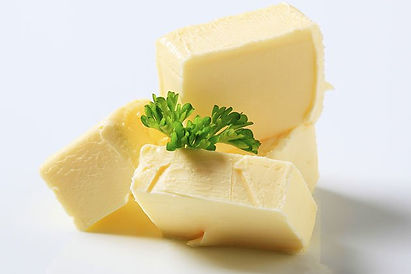
Fats
What exactly is fat?
Saturated fat, heart-healthy fats, Omega 3s, low-fat diets, high-fat diets, and more are all explored here. But do we really need it? Yes!
One of the three types of nutrients that provide us with calories (energy) is fat. The other two are proteins and carbohydrates. To survive, we need all three.
Your body requires fat to:
-
Allow for long-term energy storage
-
Give you energy and keep you feeling full
-
Help absorb Vitamins A, E, D, and K
-
Assist in maintaining a healthy body temperature.
-
Support many cell functions

At room temperature, this fat is liquid and possesses heart-healthy characteristics.
Monounsaturated fats and polyunsaturated fats are the two forms of unsaturated fats (including: omega 3). Both are good for your heart.
Unsaturated fats increase HDL cholesterol, also known as "happy" cholesterol.
Unsaturated fats can be found in foods like:
-
Olive oil (monounsaturated)
-
Canola oil (polyunsaturated)
-
Salmon
-
Nuts
-
Avocados
Keep in mind:
Nuts and avocados are high in potassium and should be avoided if your potassium intake needs to be restricted.
Unsaturated Fat
Saturated fat, like butter or the marbling in a steak, is solid at room temperature. These fats should only be consumed in tiny amounts since they raise your LDL 'bad' or 'Lousy' cholesterol, which can contribute to heart disease.
Unsaturated fats can be found in foods like:
-
Lard
-
Solid vegetable shortening
-
Butter
-
Coconut oil
-
Animal fat – (the marbling on a steak, bacon, chicken skin)
Saturated Fat


Trans fats are man-made fats that can be found in a variety of processed foods. Although trans fats preserve the freshness of our food, they drop HDL (good cholesterol) and elevate LDL (bad cholesterol), which can contribute to heart disease.
The presence of trans fats must be disclosed on the nutrition label. On a nutrition label, trans fats are listed as 'partially hydrogenated' fat or oil.
The Food and Drug Administration (FDA) ordered food manufacturers to begin eliminating trans fats from processed foods in June 2018. They anticipate that all processed foods will be free of trans fats by 2023.